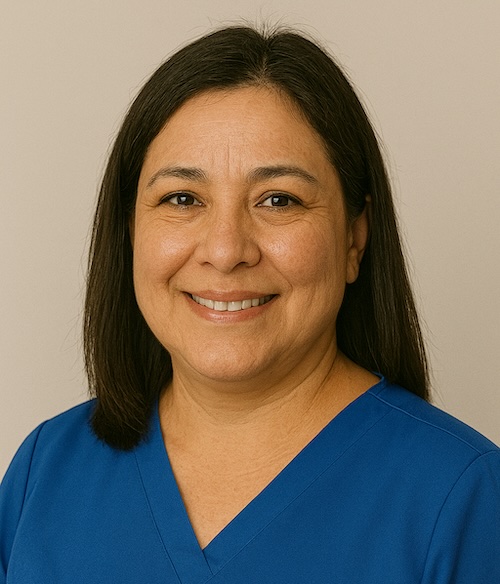

Maria Delgado, RN
June 19, 2025
District of Columbia RN-to-BSN programs build on an associate degree or diploma to prepare nurses for expanded roles in leadership, community health, and evidence-based practice. Offered by institutions such as the University of the District of Columbia, Howard University, Trinity Washington University, and George Washington University, these CCNE-accredited completion programs equip RNs for career advancement and graduate-level study.
Washington, DC - Private 4-year - howard.edu
Online Learning - Visit Website
Howard University's online RN to BSN program provides registered nurses with a flexible, accelerated path to a bachelor's degree, emphasizing critical thinking, evidence-based practice, and culturally competent care. Designed for working professionals, it can be completed in 12 months full-time or part-time, requiring a current RN license and a minimum 3.0 GPA. As an HBCU with a hospital on campus and military-friendly policies, it enhances leadership skills and career opportunities in diverse healthcare settings, with no entrance exam required for this bachelor's level program.
Washington, DC - Private 4-year - www2.trinitydc.edu
Online Learning - Visit Website
Trinity Washington University's online RN to BSN program offers a flexible, accelerated path for registered nurses with an associate's degree to earn their bachelor's in nursing. This 100% online program, accredited by the Commission on Collegiate Nursing Education, can be completed in one year and allows for up to 32 transfer credits. With options for full-time or part-time study and financial support through the Conway Scholarship, it enhances career opportunities without requiring an ACT or SAT entrance exam.
Washington, DC - Public 4-Year - udc.edu
Online Learning - Visit Website
The University of the District of Columbia's RN to BSN program is an ACEN-accredited, online offering designed for working nurses, featuring an 8-week course format and 120 total semester credits. It emphasizes evidence-based practices, leadership, and technology-driven learning through small classes under 10 students, with no concentration specified. The program does not require an ACT or SAT entrance exam, as it is a bachelor's level program. Highlights include virtual reality curriculum, practicum components, and affordability, preparing graduates for roles in complex healthcare environments with a focus on critical thinking and interdisciplinary collaboration.

Didactic coursework is delivered fully online via asynchronous modules and occasional live webinars, with clinical skills labs and practicums arranged at local DC healthcare sites. A few programs offer optional on-campus intensives for simulation and peer collaboration, ensuring flexibility without sacrificing hands-on experience.
| School Name | Highlights | Retention & Grad Rates |
|---|---|---|
| Trinity Washington University |
|
|
| Howard University |
|
|
| University of the District of Columbia |
|
|
| Certifying Board | District of Columbia Board of Nursing under DC Department of Health |
|---|---|
| Certification | Graduate of a Board‑approved BSN, submit transcripts, pass NCLEX‑RN, complete fingerprint background check |
| License Renewal Period | Biennial renewal on the last day of birth month, window opens mid‑April, due by June 30 |
| Continuing Education | 24 contact hours every two years (2 hours cultural competency, 3 hours public health priority) |
| License Application Fee | $85 application, $102 license, $50 background check, $200 NCLEX |
| Clinical Hours | Supervised practice in adult health, pediatrics, maternal‑newborn, psychiatric‑mental health, and community health |
| Application Processing Time | Authorization to Test issued on approval, allow up to 30 business days post‑exam for full license |
| License by Endorsement | $280 endorsement fee, verify RN license, submit transcripts and fingerprints |
BSN-prepared RNs in Washington, D.C. earn on average around $110,000 per year, roughly $5,000–$10,000 more than ADN-prepared peers, and qualify for higher-paying roles in leadership, specialty units, and case management.
| Salary & Career Outlook | District of Columbia | USA |
|---|---|---|
| Avg Annual BSN Salary | $95,200 | $62,340 |
| Avg Hourly Wage | $45.75 | $29.97 |
| 90th Percentile Salary | >$115,000 | $80,510 |
| Median Salary | $95,200 | $62,340 |
| 10th Percentile Salary | <$68,000 | $47,960 |
| Projected Job Growth (2022-2032) | 13% | 3% |
| Annual Job Openings | ~250 | ~54,000 |
Data Sources: U.S. Bureau of Labor Statistics (BLS) and Salary.com.

| School Name | Highlights | Annual Estimated Tuition & Fees |
|---|---|---|
| University of the District of Columbia |
|
|
| Trinity Washington University |
|
|
| Howard University |
|
|
Earning a BSN opens doors to graduate nursing studies (MSN, DNP, NP programs) and roles in clinical leadership, informatics, public health, and academia. Post-BSN specialty certificates, such as nursing education or population health, further expand career options without requiring a full graduate degree.
Additional Nursing Programs in District of Columbia
Online Learning - Website
Online Learning - Website
Online Learning - Website